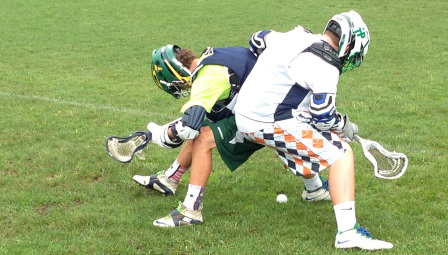A sleepaway camp is a wonderful experience for all kids. Experts recommend that kids younger than seven should not attend overnight camp. Understandably, any child that has separation anxiety will have difficulty at sleepaway camp. There is no best age for overnight camp, but the average age for campers is between nine and ten. Because all children are inherently different, parents are the best judges of their child’s readiness for overnight camp. Additionally, there are other factors that need to be taken into account when determining whether a child is ready to go away to summer camp.
Type of Camp
The type of camp being considered is a main factor in determining if your child is ready to go away overnight to sleepaway camp. Children have a particular interest at every age of development. When a child is interested in the activities and instructions being shared at camp, they are less likely to experience feelings of stress and anxiety about being away from home. Kids between the age of four and seven are not ready for exposure to overnight experiences away from home without relatives. Children in this age group have yet to establish clear interest apart from parental influence, so choosing the proper camp to engage their interest will also present a challenge. As mentioned earlier there is not a magic age of camp readiness, but beginning at age eight children develop a specific interest in activities like sports, music or art. There are many camps that appeal to these interest, and can cultivate those budding hobbies in your child. Also, the length of the camp should be taken into account when scheduling your child for attendance. If your child is a first-time camper and on the younger end of the spectrum, then you may want to consider starting with a shorter entry-level program of only a week or two.
Maturity Level
Regardless of age, some children are not mature enough to be away from their parents prior to exiting school. Only parents will be able to know the maturity level of their child. There are children that will resist being sent to camp at ten, twelve, or sixteen. Some children are reluctant to take the leap into an unknown environment. Urging camp attendance for your reluctant child is where parents need to choose if they want to encourage their child to take the risk of sleepaway camp. A growing number of college students are beginning their experience without having spent any time away from home. They haven’t learned many of the healthy experiences that sleepaway camp can provide. Maturity level is only an issue when the child is below the age of nine, but by the age of ten, parents will want to encourage camp attendance for children maturing slowly. An overnight camp gives children their first real taste of independence and helps them develop coping skills to combat homesickness later in life.
Parenting Style
Many parents are not ready for their child to go away to sleepaway camp. It’s understandable to worry about your child and be concerned about their needs being met. Much of this can be resolved by choosing the appropriate camp for your child. Accredited camps have information about services and counselor to camper ratios that can put even the most worry prone parent’s mind at ease. Especially in the case of younger patrons, camps have higher counselor to camper ratios to ensure the needs of the youngest members overnighters are met. Parents can feel confident in their child’s safety if the camp is accredited, you’ve done appropriate research, and your child is both old enough to articulate their needs and mature enough to manage themselves through limited events during a daily camp schedule. Parents should make sure to open an honest dialog with their child about realities of overnight camp. It’s unlikely your child will be able to call home when they are sad, but that doesn’t mean that the whole of conversation about the camp should be about what happens if they are unhappy. Talk to your child about the fun they will experience, and work within the camp’s rules to determine a communication plan with your child so that you are both comfortable with the summer camp experience.
Support System
If friends and siblings are attending the same camp as a younger camper, it changes the readiness age for sleepaway camp. Younger children with older siblings that regularly attend camp have relational experience with camp structure. They are also less likely to experience separation anxiety. A child younger than seven is still not encouraged to attend overnight camp alone without strong parental confidence. Their ability to cope with unknown environments and situations is an important consideration that is the deciding factor in whether they are ready for overnight camp. That factor will change if they have friends or siblings in attendance at the same camp. Younger campers with siblings and friends have less of an adjustment period to endure.
Parents know what is best for their child. If you have researched and found a camp that meets both the social, athletic, and educational interest of your child, you should feel confident that they would thrive in their new experience. Camp is a foundational experience for children.
Recent Blog Posts
4 Strategies to Handle Those Pre-Game Nerves in Lacrosse
Pre-game nerves affect lacrosse players at every level—from youth leagues to professional fields. But here's the good news: those butterflies in your stomach can fuel your performance when you know how to harness them properly. [Read More>]
A Guide on Paths to Keep Playing Lacrosse After College
The final whistle of your college career doesn't have to signal the end of your lacrosse journey. For passionate players, the transition from collegiate competition to post-graduate play represents a new beginning with different—and often [Read More>]
Is Lacrosse Camp Right for My Child? Here’s What to Consider
As summer approaches, you're likely weighing various activities for your child. Lacrosse camps offer intensive skill development, new friendships, and memorable experiences – but how do you know if it's the right fit? Making this [Read More>]










